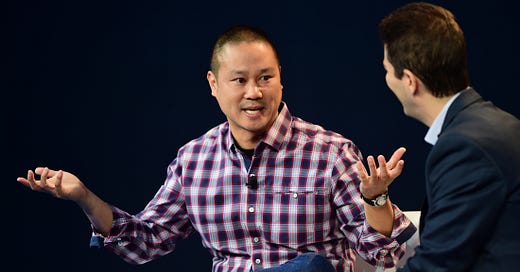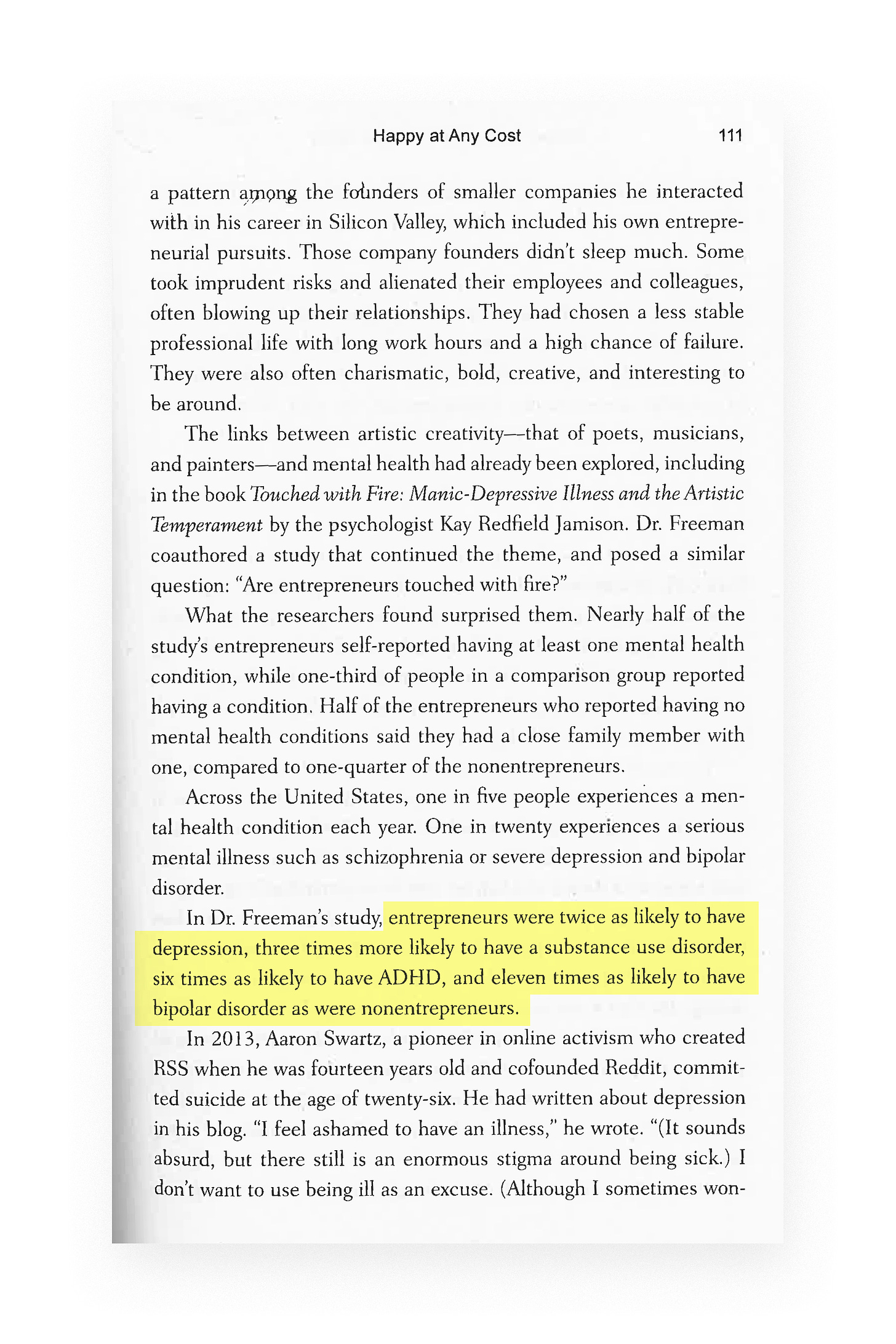As much as one can know most everything by browsing the Internet, there are certain things that can only be gleaned with time and experience. It’s a truth that was central to the plot of Good Will Hunting. And it continues to stand today. There’s a difference between knowledge and wisdom. Information is one thing. Reflecting on that information through the filters of context, memory, and holistic life is another.
There are many things that have become clearer and sharper for me as I’ve gotten older. I can say that now. Forever, I was told I was young or that I looked young. I don’t hear that anymore. I’ve embraced my age and its unforgiving creases. Mostly because life is shaking out a tiny bit more. I’m getting better at reading people and discerning dead ends. I know what I’m good at, but more importantly, what I’m really very bad at. I’ve learned that just because I can, doesn’t mean I should. And I’ve accepted that money, fame, and power may feel good, but patience, proud work, and compassion are actually good.
I’m discovering more about the world and therefore more about myself. Over ten years ago, I started seeing a therapist who helped me reconcile the cloudier parts of my inner life and outwards behavior. I suffered heavy depression in my youth. I sat in the dark and didn’t leave my bedroom for most of high school. I wrestled with suicidal thoughts and toyed with casual attempts. In those days, much of this type of fixation and ideation was pinned to being an angsty youth or emo. Skateboarding, punk-rock, and graffiti were the antidotes for this teenage misery. Drugs and alcohol were the most convenient means of self-medication.
Today, we know better. And we also know, thanks to the Internet, that people who suffer from despair are not unique. It’s hard enough enduring this type of pain privately, but navigating this unhappiness alone in a gleeful world is absolute torture. Thanks to benevolent organizations, awareness campaigns, and the bravery of influential people who’ve been transparent around their struggles, the stigma around mental health disorders has dissipated. It’s because of them that I feel encouraged and supported to share my own mental health journey.
Last year, after 12 months of seeing a new therapist, I was diagnosed with Bipolar Disorder (most likely Bipolar II). “You couldn’t be more bipolar,” was how my psychiatrist put it. I heard the diagnosis at .5x speed, like the teacher in Peanuts was labeling me a crazy person while drinking lean. It sounded like he was talking about somebody else, in a foreign language, as the universe slowed to a crawl.
“The funniest thing happened this morning,” I told my wife as she was brushing her teeth.
“Mmhmm?” she muttered.
I leaned against the doorframe and chuckled. “Yeah! So, my therapist thinks I’m… bipolar?” I scanned her face for any knee-jerk reaction. Perhaps she’d spit toothpaste foam or sob or head for the hills. After all the chaos I’d put her through in our marriage, perhaps this would be the excuse she needed to leave me for Ryan Gosling or whomever.
“Mmhmm…,” again.
“Do you…think I have bipolar disorder?”
“Mmhmm.” She rinsed her mouth and turned to me. “What part of this is surprising to you?” She wasn’t being mean. She sincerely meant it.
“I dunno… I guess, it makes sense?,” I feebly offered.
My wife crossed the bathroom and hugged me. She looked me square in the eyes. “Babe, we’ve always known.”
One by one, I went down my personal groupchats. I started with my brothers.
“Lollll we’ve known our entire life,” my older brother replied.
“Duh!,” my college roommates answered.
I got to work, pulled my assistant into my office, and asked her to close the door behind her.
“I have some crazy news…I…have bipolar disorder.”
“Yeah… I’ve always kinda assumed,” she whispered.
And that was the moment that I realized everyone else had trussed their interactions around me to accommodate my disorder. I don’t think the bull appreciates the extreme precautions the matadors and rodeo clowns have mastered in order to work together. Throughout my life, my friends and family smartly flailed the capes, steered me in directions, and knew when to get the fuck out the way. And here I was the entire time, thinking everybody else was a bull also.
Upon breaking the news to my wife, I felt like I had failed her. But the more I shared my diagnosis and was met with grace and love, the more I realized how gigantic of a relief this was for everybody. This was a radiant W. After all these years, amidst all the chaos and confusion, we were finally addressing the elephant in the room. I also apologized for my lack of self-awareness, which brought us closer together. Greatest of all, I became more attuned to my peaks and valleys. I now know when to capitalize on seasons of abundant creativity. I’m also more sensitive to when I’m slipping into a slump and can rearrange my schedule accordingly. Honestly, it’s like realizing that I’m an X-men and knowing how to harness my mutant powers for good.
I haven’t necessarily hid my diagnosis for the last year, but I haven’t felt exactly inspired to share it. I’ve been spending my time with it, like I’m harboring the AllSpark in my jeans pocket. For one, I don’t treat it lightly. Bipolarity is a serious disorder that can have catastrophic ramifications for many peoples’ lives. And of course, there are still societal stigmas and negative image associations assigned to bipolar disorder. As a business owner and father, I do have to consider how the people around me may be affected.
Last month, I picked up a copy of Happy at Any Cost, the story of Tony Hsieh’s final days and eventual death at the merciless hands of mental health illness. Hsieh was a famous Asian-American entrepreneur, most notably the CEO of Zappos who sold his company to Amazon for over a billion dollars. While celebrated by the tech and business world for his discernment and vision, Hsieh was secretly embattled with a variety of mental health disorders, resulting in substance abuse and other self-harm.
I’m not oblivious to the fact that most of my audience ~ and this Substack readership ~ is comprised of creators, founders, Asian-Americans, and men. Compared to women, males “are less likely to seek treatment for depression due to gendered expectations that equate masculinity with emotional stoicism.” The CDC says that “the suicide rate among men in 2021 was nearly four times higher than the rate of women.”
Asian Americans are among the least likely to seek mental health care. “In one study, less than 9% sought any type of mental health services over one year compared with 18% of the general U.S. population.”
What’s even less discussed — if ever at all — is how much the entrepreneurial community is wracked with mental health struggles. It’s especially striking when you realize that the two often go hand in hand — a symbiotic relationship. Hsieh’s life was emblematic of this explosive dynamic. He spearheaded the revitalization of downtown Las Vegas while abusing nitrous oxide and alcohol. In “Happy at Any Cost,” the authors cite a study in which “nearly half of the…entrepreneurs self-reported having at least one mental health condition” compared to just one-third of non-entrepreneurs in a comparison group.
“Entrepreneurs were twice as likely to have depression, three times more likely to have a substance use disorder, six times as likely to have ADHD, and eleven times as likely to have bipolar disorder as were nonentrepreneurs.”
It’s arguable that the very nature of certain mental health disorders may be the core explanation for many people’s successes. When my psychiatrist told me that he believed I was bipolar, he could tell I was stunned by the news. What he said next jarred me awake.
“We are realizing this is more common than we thought, especially in the upper tax brackets,” he comforted me. As it turns out, business owners, innovators, and CEOs disproportionately share bipolar disorder across the population. A UC Berkeley study found that “72% of entrepreneurs are directly or indirectly affected by mental health issues compared to 48% of non-entrepreneurs. Of the entrepreneurs they studied, 30% had a history of depression, 29% had ADHD, 12% had substance abuse issues and 11% reported having bipolar disorder.”
Although I was fearful and ashamed of being diagnosed bipolar at first, I’ve since built a relationship with the disorder the way I understand my other personal attributes and characteristics. It’s filled some of the shadowy corners with sunlight, providing a fuller picture of me and how I operate. And it’s been another humbling reminder of how nuanced I am, how much I have yet to discover about myself, and how much better I can be.
The Tony Hsieh story is fast becoming one where we normalize mental health awareness in communities and cultures that have never properly broached the conversation: entrepreneurs, creators, founders, men, and Asian-Americans. But we shouldn’t have had to lose a great and inspiring figure like Tony in order to get there. One day soon, we’ll look back on the silly stigma, silence, and discomfort around mental health issues and think it to be absolutely, unquestionably crazy.
If any of this testimony resonates, if you feel seen or if you believe you need help, I strongly urge you to seek support and treatment immediately. Professional assistance in the form of therapy and counseling can dramatically improve your life and speed up recovery. Although I don’t feel perfect today, I am in a much better place after having gone through therapy and done the work.
Here’s my most recent interview with one of my dearest and oldest friends Leah McSweeney. Leah founded Married to the Mob, a pioneering women’s streetwear brand. Today, she is best known as a Real Housewife. Not only was this the first time she cried on her own podcast, this is the first time I speak aloud about my mental health history. It’s raw and real. I hope this helps others feel less alone.







Bobby! This one is huge. I applaud you so much, and guarantee that you've changed the lives of many people (especially Asian men) to have permission to go on their own mental health journey.
I was diagnosed with borderline personality disorder and been on a mission to raise awareness and share my story through writing and endeavours. I started a nonprofit to raise awareness specific to Asian mental health to help normalize the stigma and provide competent resources and funding.
Getting your story out into the world is a massive step, and your courage is inspiring as hell.
“This was a radiant W.” ❤️❤️❤️